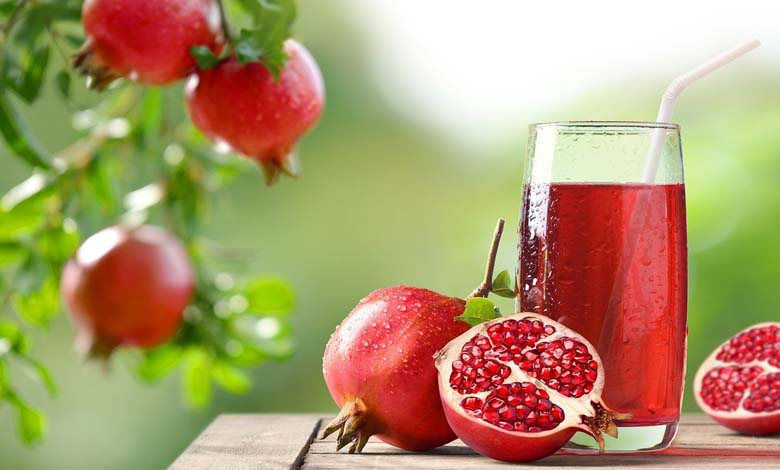Drinking Pomegranate Juice Daily: A Natural Ally for Heart Health and Blood Pressure Regulation

In recent years, pomegranate juice has garnered increasing attention in the fields of nutrition and cardiology. Numerous scientific studies have highlighted its potential benefits on cardiovascular health, particularly in regulating blood pressure and protecting arterial function. This ancient fruit, long praised in traditional medicine systems across the Middle East and South Asia, is now being rediscovered for its therapeutic value, largely due to its high concentration of natural antioxidants.
-
How to store pomegranates to enjoy them longer without spoiling
-
4 Types of Gut Bacteria Linked to Living Up to 100 Years
Pomegranate (Punica granatum) is especially rich in polyphenols, including ellagitannins—compounds that play a central role in reducing oxidative stress. Oxidative stress is a major contributor to cellular aging and the onset of cardiovascular diseases. Regular consumption of pomegranate juice has been associated with improved endothelial function—the ability of blood vessels to dilate—which is crucial for maintaining stable blood pressure and healthy circulation. This improvement helps prevent atherosclerosis, a condition characterized by the buildup of fatty deposits along the arterial walls.
-
Dried Nuts that Naturally Lower Uric Acid
-
Including Bananas: Potassium-Rich Foods That Control Blood Pressure
A 2017 meta-analysis published in Pharmacological Research reported that consistent pomegranate juice consumption led to significant reductions in both systolic and diastolic blood pressure. Researchers credited this effect to the vasodilatory properties of its antioxidants and their capacity to lower levels of angiotensin II, a hormone that constricts blood vessels. Unlike pharmaceutical treatments, pomegranate juice works gradually and naturally, with few to no adverse side effects when consumed as part of a balanced diet.
-
Health Benefits of lemon juice
-
Autumn and the start of school: A nutritional recipe to boost your child’s immunity
Beyond its impact on blood pressure, pomegranate juice may also help lower levels of LDL (“bad”) cholesterol and increase levels of HDL (“good”) cholesterol. This dual action makes it especially beneficial for individuals with high cardiovascular risk. Additionally, some studies suggest that pomegranate juice may slow the oxidation of LDL lipoproteins—a key step in the chronic inflammation of arteries. It thus emerges as a promising natural adjunct in the prevention of coronary heart disease.
-
Here are the 7 winter fruits to fill up on vitamins
-
Health: here are the advantages of these fruits on our body!
However, it is important to consider the quality of the juice. Not all pomegranate juices on the market offer the same benefits. Many commercial versions are sweetened, highly pasteurized, or blended with other fruit juices, which can compromise their antioxidant potential. To fully benefit from pomegranate juice, it is advisable to choose a 100% pure, cold-pressed product with no added sugar. While the optimal intake is still under debate, most studies suggest that a daily dose of 200 to 250 ml is sufficient to observe meaningful cardiovascular effects.
-
Glycemic index: 100 foods that can be eaten at will
-
Does Beetroot Juice Help Detoxify the Liver? A Deep Scientific Analysis
In summary, drinking a glass of pure pomegranate juice daily may be a simple yet powerful step toward enhancing heart health, particularly for those with hypertension or elevated cardiovascular risk. Still, this natural remedy should not be seen as a substitute for a healthy lifestyle. A balanced diet rich in fiber and low in saturated fats, combined with regular physical activity, remains the cornerstone of cardiovascular prevention. When incorporated wisely, pomegranate juice can serve as a valuable ally in the pursuit of optimal heart health.
-
How Does Banana Affect the Benefits of Berry Juice?
-
“Relieves Headaches”: 7 Amazing Benefits of Ginger Juice












